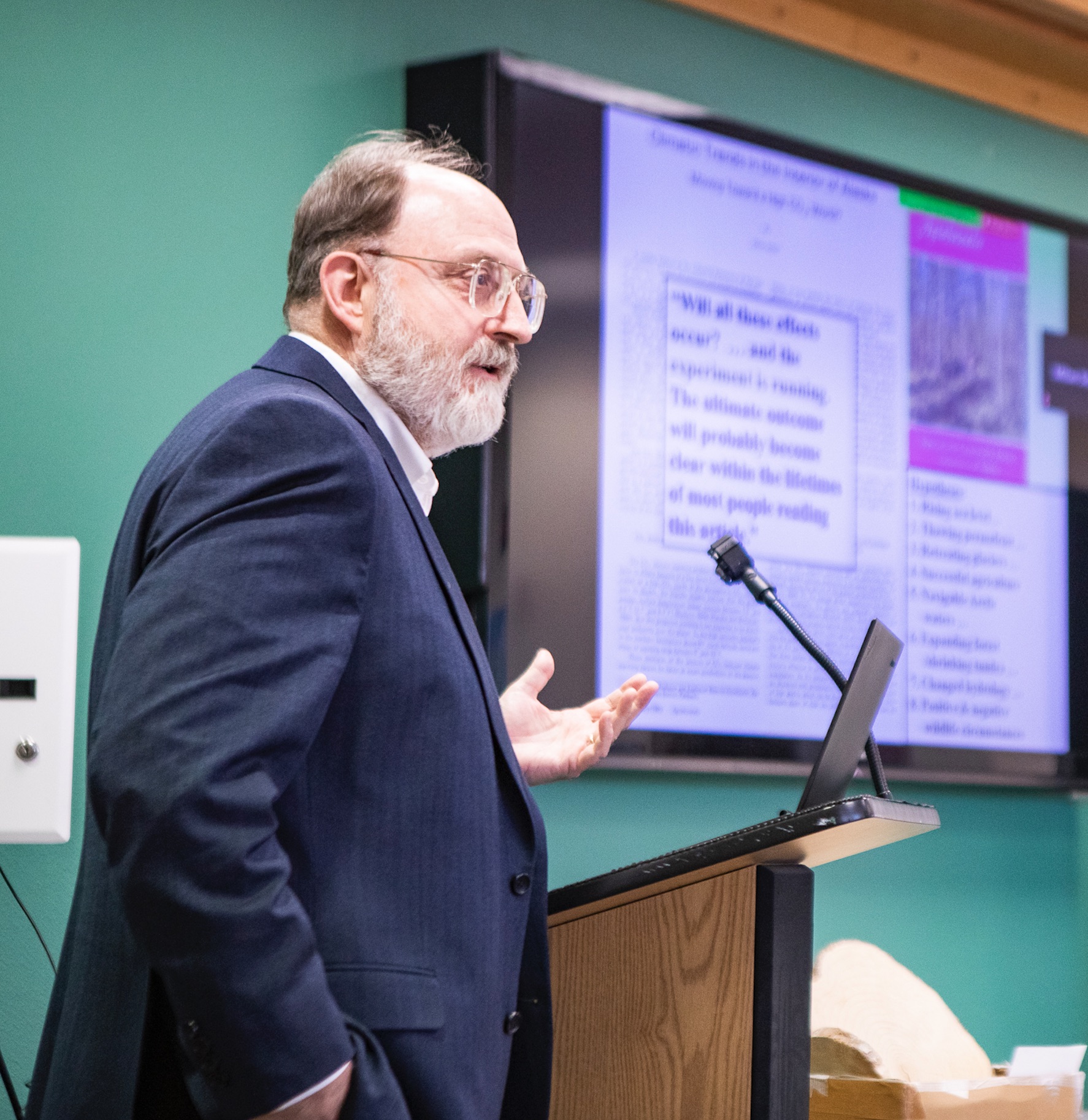Glenn Patrick Juday, is Professor Emeritus of Forest Ecology in the Natural Resources and Environment Department and the Agricultural and Forestry Experiment Station at the University of Alaska Fairbanks. Dr. Juday was Chairman of the Oregon Natural Area Preserves Advisory Committee from 1973 to 1977, and served as President of the Natural Areas Association from 1985 through 1988.
He maintains a number of research and environmental monitoring activities, particularly in the Bonanza Creek LTER, where he was a Senior Investigator from 1990 to 2017. He served on the 1981 peer advisory group for The Institute of Ecology report to NSF that proposed what became the LTER program. His scientific and professional publications include natural controls over biodiversity, climate variability and change, tree ring studies, sustaining biodiversity in forest management, and forest development following wildfire and forest harvest. He taught one of the first course in the U.S. with the title Conservation Biology.
Dr. Juday began focused research on climate change in 1980. He worked for 15 years as Alaska Ecological Reserves Coordinator and was responsible for establishing or proposing 80 research natural areas totaling nearly 670K acres.
He received the George Fell award from NAA in 2021 and the 2022 Lifetime Achievement Award from the Purdue University Forestry and Natural Resources Department. He is engaged in science advising for The Energy Council and is active in the faith/science dialog particularly in national and international Catholic institutions.
Natural areas protection and management, and the scientific study of ecosystems have common roots through a number of shared goals, perspectives, people, and history. The LTER concept in large part grew out of the thinking and experiences of people who needed to understand how species and ecosystems were functioning as they faced the challenges of permanently protecting natural areas or assuring sustainable resource production. Natural areas occur within larger ecosystems that bring many influences into areas established for the permanent conservation of biodiversity. Natural area managers can gain critical knowledge from LTER experiments, monitoring of core ecosystem functions, continuity, data archiving, deep time perspectives, large spatial perspectives, and specialized expertise on unstudied species.

Support the people who manage our natural areas and protect biodiversity in perpetuity.